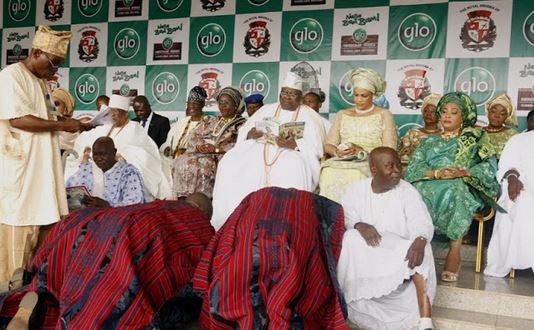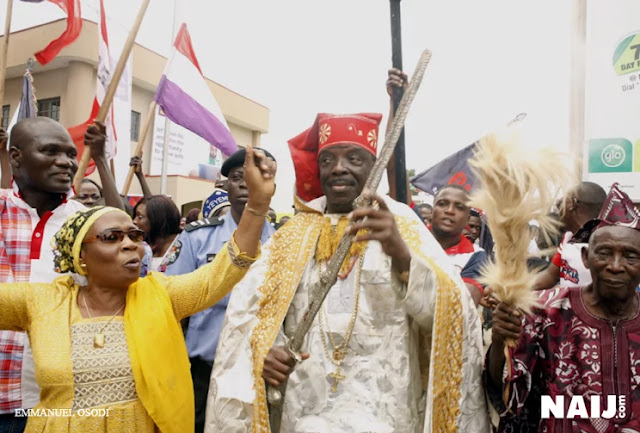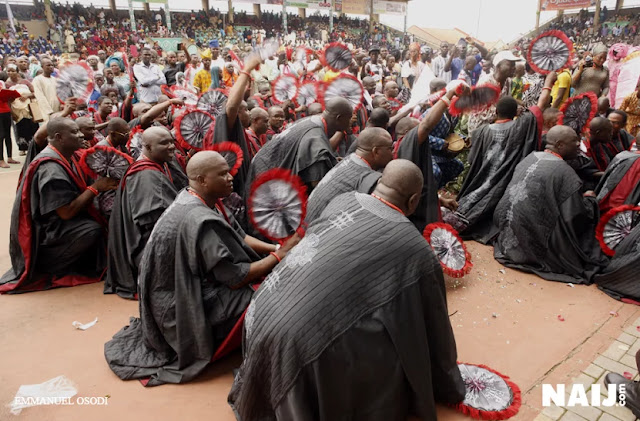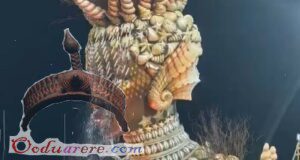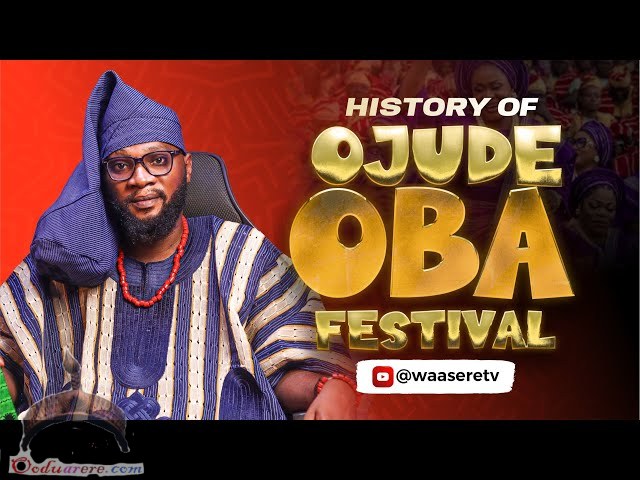Historical Background of Ojude Oba
Ojude Oba which means, “the king’s fore-court or frontage,” could also be translated as “majestic outing.” The Ojude Oba festival in Ijebu Ode is known to the Ijebus as a major festival that brings them together. The native age groups (regberegbe), indigenes, their friends, and associates from far and near throng the palace of the Awujale of Ijebuland for the carnival-like celebration. The festival is celebrated on the third day after Id-El-Kabir. Ojude Oba is one of the most glamorous cultural and spiritual festivals in Ijebuland and in Ogun State in general. This is a celebration that has traditional, cultural, religious, social, and military significance. It has been celebrated for more than 100 years.
According to oral historical accounts, the festival began when Balogun Kuku, one of the leading personalities in the community, accepted Islam. He decided to gather his friends, families, and well-wishers to pay homage to the king for giving them the opportunity to practice their religion peacefully (Balogun Kuku, n.d.). In another account, the festival was said to have started when Imam Tunwatoba led his friends and family members to pay homage to his friend, who was also the Awujale of Ijebuland, Oba Fidipote during the eid-l-adha festival. Imam Tunwatoba thanked the king for being instrumental to the freedom enjoyed by the Muslims in the community to practice their faith in a peaceful atmosphere (Babatunde, 2007). They prayed for the monarch to enjoy a long life, good health, and for the progress and prosperity of Ijebuland. Since then, what began as a visit has grown in leaps and bounds to assume the status of a flagship cultural festival.
The Festival
The glitz and colors associated with the festival rank among the most celebrated cultural festivals in Nigeria. Ijebu sons and daughters, Muslim and non-Muslim, always look forward to this event. It is an agelong tradition. The ceremony takes place every year on the third day of eid-l-adha, when Muslims and non-Muslims go to the Awujale palace, singing and dancing with the principal chiefs of the town and riding on horses to pay homage to the Awujale, no matter his religious affiliation. What is important is that he sits on the throne throughout the length of the ceremony to receive his people (Danmole, 2008). Different age groups in specially tailored dresses dance around the town (Oladipupo, 1967). Although the festival began as purely a Muslim affair, it has over the years acquired new meaning as it now embraces features of local traditions (Danmole, 2008).
The Ojude Oba festival normally begins with prayers by the Imam of Ijebuland, followed by the National Anthem, Ogun state Anthem, and the Awujale Anthem, and finally the lineage praise of the Ijebus. The Awujale anthem goes thus: Kaabiyesi o (2ce) Alaiye Oba wa, K’adepel’ori o kibatape lese, k’adepel’ori. K’odigbapel’orun, Ki Oba petiti, Ki ijobatuwalara, kaabiyesi o. Oba waoninu re. Kaabiyesi o (2ce).8
After the anthems and lineage praise, the parade of different ages in the community known as Regberegbe begins. The age grade societies were established in the 18th century. Wompari is the general name given to all the age grade societies. Some of the age grades are Egbe Gbobaniyi male and female (1962-1964), Egbe Bobagunte male and female (1956-1958), Akile of Ijebu (1959-1961), Mafowoku, Egbe Arobayo male and female, Egbe Jagunmolu (1965-1967), Egbe Bobakeye, and Egbe Bobagbimo. All the age grades present their special gift to the king as they parade (see Figures 3 and 4).
 Ọmọ Oòduà Naija Gist | News From Nigeria | Entertainment gist Nigeria|Networking|News.. Visit for Nigeria breaking news , Nigerian Movies , Naija music , Jobs In Nigeria , Naija News , Nollywood, Gist and more
Ọmọ Oòduà Naija Gist | News From Nigeria | Entertainment gist Nigeria|Networking|News.. Visit for Nigeria breaking news , Nigerian Movies , Naija music , Jobs In Nigeria , Naija News , Nollywood, Gist and more

